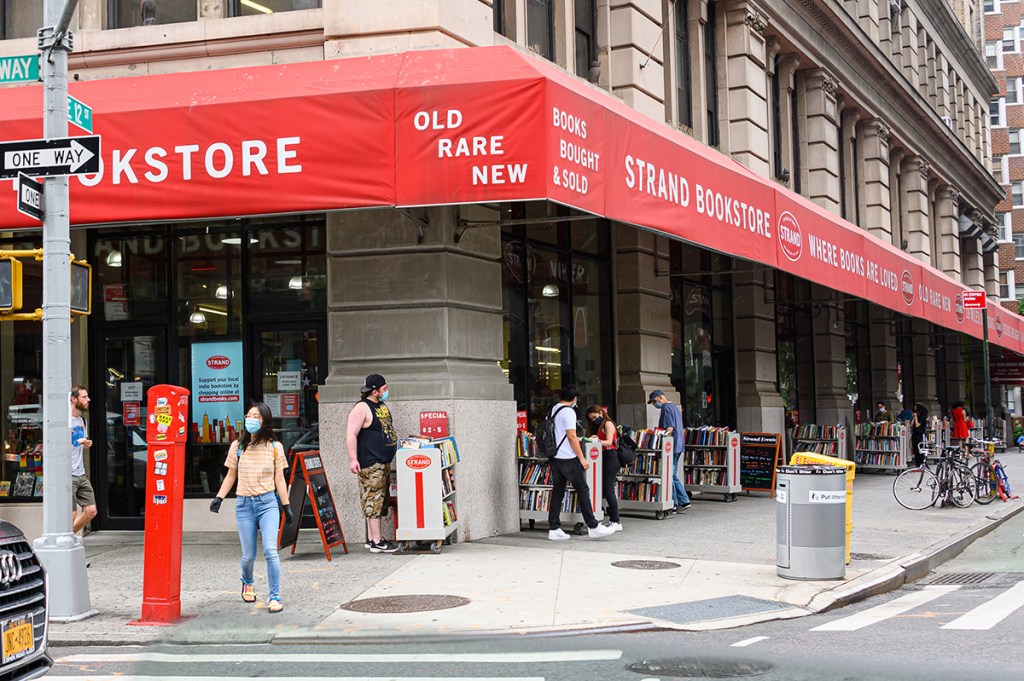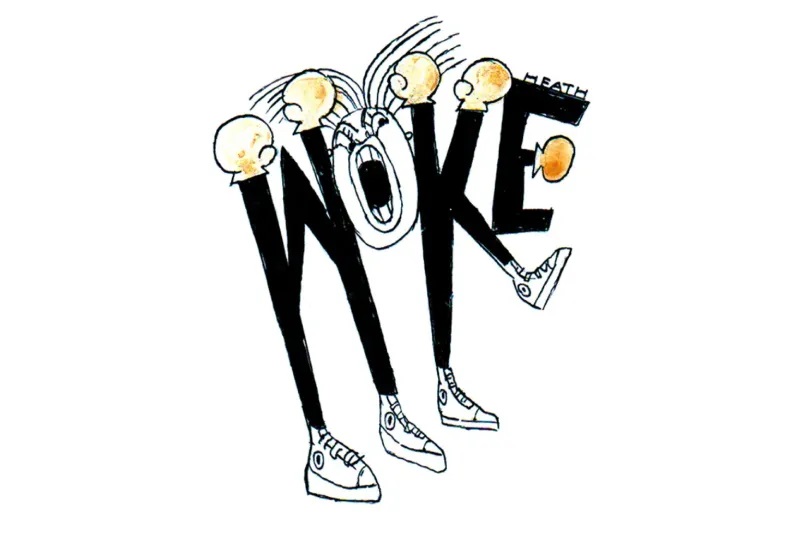On Friday book-loving New Yorkers got a shock as the city’s largest bookstore — The Strand — announced that it risked going out of business. A post on Twitter from the company said:
‘We need your help. This is the post we hoped to never write, but today marks a huge turning point in The Strand’s history. Our revenue has dropped nearly 70% compared to last year, and the loans and cash reserves that have kept us afloat these past months are depleted.’
📣 We need your help. This is the post we hoped to never write, but today marks a huge turning point in The Strand's history. Our revenue has dropped nearly 70% compared to last year, and the loans and cash reserves that have kept us afloat these past months are depleted. pic.twitter.com/mI074pigZu
— Strand Book Store (@strandbookstore) October 23, 2020
What followed included an appeal to the public to return to the store to ensure that the 93-year-old business could keep trading. Prominent writers and pundits rallied around, and in recent days lines have appeared outside.
But I’m not sure The Strand’s supporters are backing the right horse. I loathe Amazon as much as the next person who relies on it. But on recent visits to The Strand I have left empty-handed and had to revert to the dreaded competitor-destroying behemoth. Because there are very specific problems with The Strand and if it doesn’t make it to its century then it will be its own fault.
The book trade in America is badly screwed up, as it is everywhere. In part this is because many publishing houses seem to think that their role is not to give the public the books they want, but rather the books the publishing houses think the would be best instructed by. It is the nature of the publishing industry, and the way it hires, that the viewpoint diversity in the sector is narrow, blinkered and parochial.
That same viewpoint is now replicated on the frontline. Increasingly bookstores are places where customer are force-fed books that the store’s employees think will be good for them. In recent months in particular bookstores in the US have decided that if they push certain products on the public hard enough then all those who work there will be doing their bit to defeat white supremacy/embedded racism/patriarchy/cisheteronormativity/Donald Trump and more. The joy of bookshops used to be that they offered an opportunity for the reader to open their mind up to many worlds. Today many bookstores seem to think that their role is to force-feed their customers with only one view of the world: one that the retailers honestly seem to believe is the only worldview a literate or thinking person could possibly have.
The Strand has become among the worst offenders. Although it does have a range and some diversity of books in the darkest recesses of its stacks, the books which it forces on its customers from the windows to the great piles on the entrance tables are those books which include what I call the ‘anti-racism 5-a-day’. These are the books which, however turgidly written and untruthful they are, seem intended to form the armory any ‘good’ citizen should have on their bookshelf or coffee table. Even when they lie unopened.
On a recent visit to The Strand bookstore I despaired from the window onwards. For I did not want to buy a book about Judge Ruth Bader Ginsburg. Eminent a figure though she was, it seems strange to me that a bookshop should appear to offer so many books about a judge. What if you want to read about someone else?
[special_offer]
Inside the tables were packed in the same way. Various books about (and purportedly by) every left-wing politician in America filled the tables. You might say that this is because New York is a left-wing city. But at least half of the country (and many New Yorkers) do not hold left-wing views, and The Strand seemed to have little to say to them. Other than that they are wrong and should read the following, dully improving books. At this point in the argument people in the book trade tend to claim that sad though they are to say it ‘liberals’ buy books and conservatives don’t. But among much else the bestseller lists of the New York Times (to the chagrin of that former paper) proves that this is not true. It is just that people like those who stack the shelves at The Strand and similar bookstores seem to think that nobody of a conservative or contrarian frame of mind would enter a bookshop. Or that if they did then this is nothing but the best opportunity to thwart or otherwise counteract such bigots.
As it happened, on my last trip The Strand had none of the books I was looking for. I wasn’t searching for any viciously right-wing tracts. The store had simply decided to go big and long on the ‘improving’ literature that it seeks to push on New Yorkers (Kendi, Coates, DiAngelo and all the rest) and it had done so at the expense of the variety and pluralism it once displayed. For instance near the front entrance on my last visit there stood a considerable quantity of the book (notorious to the readers of this publication) titled In Defense of Looting. Were I not on a guest in the country I should have picked up that whole steaming pile, walked out of the door and dumped them on the kerbside. For aside from believing that the author of that book should be taken at their word, it is quite something for a shop in a town that recently suffered an outbreak of looting to be prominently promoting a book which explains not only why ‘all cops are bastards’ but why the looting of other people’s businesses – businesses sometimes just as old and venerable as The Strand, incidentally – is not just fine but justified. Of course a store should stock a book. But what they push tells you where they stand.
So I understand why people might flock to The Strand when the call goes out to save it. They lingered there for many an hour in their student years. Which literary visitor to the city has not, in the past, left the place with an overweight luggage-case full of books? But The Strand is not the store that it once was. It has become another improbable victim of the culture wars, offering an ever-smaller selection of ‘good-for-you’ fare to a clearly dwindling number of customers. Sad, but not inevitable.

























